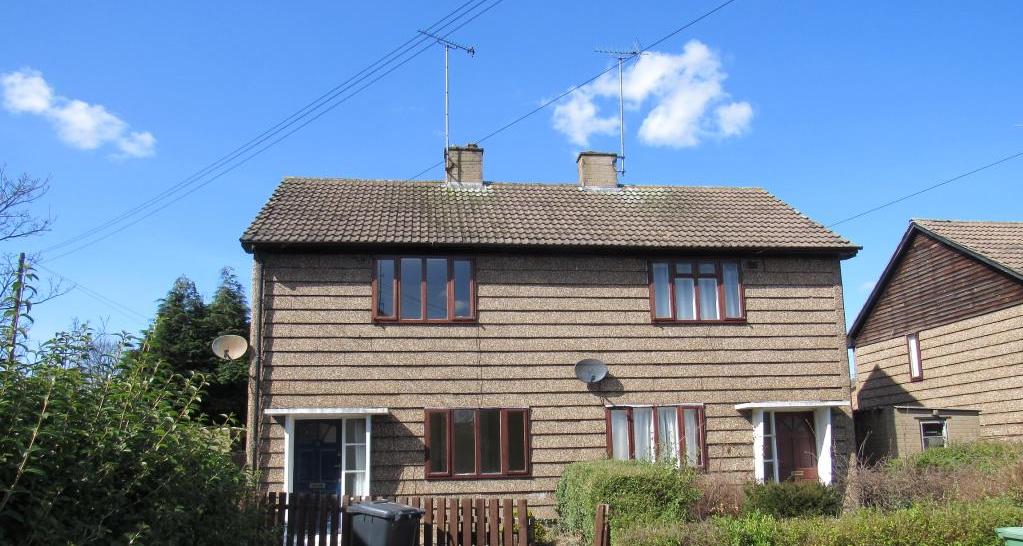By Lily Gordon Brown (@lilygbrown)
The LS26 ‘Save Our Homes’ campaign recently received the devastating news that Pemberstone Ltd’s appeal was successful. Residents of the Oulton Estate now face the demolition of their homes in the name of developer profits. This is indicative of a far wider trend across the UK housing landscape: intense marketisation and social cleansing.
The LS26 Campaign
“The appeal is allowed and planning permission is granted for the demolition of the existing dwellings and the erection of 70 dwellings including associated infrastructure at Wordsworth Drive and Sugar Hill Close.”
It was with these words, delivered only 12 days ago, that the devastating verdict of the court was handed down to the residents and campaigners of the LS26 Save Our Homes group. After years of campaigning against the demolition of their homes, which were built amidst the housing drive of post-war England, the court has accepted Pemberstone Ltd’s appeal. This judgment opens the route for the destruction of the residents’ homes and the forced displacement of the ex-mining community.
Histories: Near and Far
The estate in Oulton was originally constructed to house miners. It was bought by the then recently nationalised National Coal Board (NCB), due to the surge in coal production during and after the war. The new homes, ‘prefabs’ in Airey design, were built as part of a wave of prefabricated houses in the 1950s which aimed to meet the needs for a rapid expanse of housing stock across post-war Britain.
Whilst prefabs were designed to only last a few decades, they’ve since proved themselves to be ‘robust and comfortable houses’, with many still standing today. As a sustainable medium-term solution to the housing crisis currently facing the UK, defences of prefab construction have recently emerged, with some arguing for its return today.
By the 1980s, the NCB houses found themselves victim to Thatcher’s energy for privatisation of the UK’s public housing. The reason posed to the residents for selling was concern over ‘subsidence’ — the state of disrepair the houses were in — echoing the ‘managed decline’ we hear so much about today. Furthermore, somewhat controversially, the NCB homes were not included in Thatcher’s right-to-buy scheme, upsetting many of the tenants of the estate.
Instead, ownership was passed into the hands of private landlords, Renshaw & Sons Ltd. By 1989, many residents had departed the estate out of fear for their safety; houses across the estate were suffering from severe disrepair. Chiming with the realities of the present day, the new landlords neglected any complaints regarding repairs and thus forced residents out of their homes. In the years following, part of the estate redeveloped and sold on at ‘market value’, leaving only Sugar Hill Close and Wordsworth Drive as ‘affordable’ rental properties in the area.
By 2004, the properties remaining in a private rent scheme had been sold to Pemberstone Ltd. In 2017, the investment company announced their plans to demolish the homes comprising Wordsworth Drive and Sugar Hill Close. Residents were invited, via a leaflet through the door, to attend a ‘community consultation’ held by Pemberstone whereby they were presented with posters displaying an array of new housing on the estate. Despite Pemberstone’s claim that the housing stock would be replenished with the same number of houses, only a mere 15% would be made available at “affordable” prices.
This story of the Oulton Estate is a clear case of managed decline. Despite consistent complaints of maintenance and disrepair, Pemberstone neglected conducting any upkeep of the properties. With the housing stock run down, Pemberstone were able to make the case that demolition was the only option. Demolition would allow them to unlock the site, which backs onto attractive fields, for more profitable upmarket developments.
This fits into the wider trend we are seeing across the country: ex-social housing estates, run down by their owners to the point where ‘redevelopment’ takes precedence over repairs or expanding the social housing stock. This has only become a greater concern for residents of Oulton since the government’s publication of their Planning Futures White Paper in Summer 2020, to be discussed later.
Recent Happenings
After a protracted battle between Pemberstone and the residents of the Oulton Estate, Leeds City Council sided with the residents, rejecting the planning proposal. Undeterred, Pemberstone took it to appeal, determined to find a means of realising the profit potential of the site. The case moved to the courts.
The LS26 residents’ campaign, as Cindy recently confirmed to me, thought they’d done enough “to persuade the inspector [of the appeal] that Leeds planning refusal was the correct thing”, but he judged otherwise. His only concession was to call for a ‘hereditary report’ of the estate to take place prior to demolition.
Despite the heroic efforts of the Residents Action Group, who worked tirelessly to bring the community together and have displace a collective spirit that feels rare today expose their experiences to the nation, it appears that developer rule victorious once again. Hazell Field, social media coordinator of the Resident Action Group, tweeted in light of the appeal decision: ‘the fact I [/we] have nowhere to go doesn’t matter. A community split-up is irrelevant, it’s just about money for [the] landlord.’
On the other side, Pemberstone’s planning consultant Matthew Sheppard took to Facebook to celebrate his appeal’s success: “as always, a methodical approach combined with a rational presentation of the facts, helped secure approval in this highly emotive case”. Shepard’s acknowledgement of the emotional turmoil of the case, yet his glee that #housingdevelopment triumphs, offers us a clear distillation of the attitudes of the developers and their agents.
Not deterred, Cindy told me the Residents Action Group will not give up the fight for their homes and livelihoods. They plan to engage in further talks with Leeds City Council, as they have not yet ruled the council buying the estate and having it as housing stock: “we do not believe they have yet explored all avenues on how they can help.” What is certain is that the fight is not over, and all concerned with housing justice should be concerned with what happens at the Oulton Estate.
Social Housing Under Threat
Unfortunately, the Oulton Estate case is not an anomaly. Estates across the country are being bought out by private investors and rendered increasingly inaccessible to low-income renters.
Another example of this has been the Park Hill Estate in Sheffield which was characterised by ACORN Sheffield members as a “pioneer example of social housing”. However, the iconic brutalist council flats started to show signs of disrepair throughout the 1990s. A product of state negligence, well-managed social housing had become a thing of the past following Thatcher’s reign. In 1998, the local government moved to list the building a Grade II* as a means of “attracting developers”. The listing initially failed to meet their hopes until 2007 when Urban Splash — the Manchester-based property developers — came up with the not-so-novel “concept” to: “rejuvenate the flats by turning them into a mixture of departments, business units and social housing.”
Phase two of their scheme begun in February of 2020, renovating and “up-marketing” flats across the Park Hill estate, valued on the market between £175,000 and £245,000. The redevelopment is shutting out the social housing tenants residing there. Furthermore, Urban Splash have made more explicit attempts to out the tenants by increasing the bills exponentially during the height of the pandemic. The case was picked up by ACORN Sheffield, who stepped into to support the community. The tenants organised and demanded a cancellation of the raised bills, and through campaigning they victorious.
These stories, just two of many, reflect the magnification of the housing crisis across the UK. A trend which has largely been confined to London over the past decade is now presenting itself across the country. Social housing has become attractive to private investors, with people’s homes constantly under threat of being made a financial asset. For example, Inside Housing estimated in 2017 that 40.2% of council housing stock sold to tenants under right-to-buy are now rented out, with multiple landlords profiteering off low-income communities.
Furthermore, in recent years housing has been commandeered by Housing Associations, further absconding the state of responsibility. Commonly perceived as not for profit, social enterprises, Housing Associations have in fact been drawn into the logic of the market, increasingly acting like private developers or landlords. Once a state-funded entity, Housing Associations now tend to be a hybrid of private and non-for-profit organisations, undoubtedly contributing to the unaffordability of ‘affordable’ housing.
Planning Futures Look Grim
Across the last forty years, the government has actively reshaped society in the interests of private profit, and housing is a crucial example of this. The government’s latest proposed intervention is of huge concern. Last August, the government presented their ‘Planning Futures White Paper’, a plan that, if enacted would mark a dangerous empowerment of private developer interests.
The proposal fundamentally changes the planning process, allowing councils to give planning permission in advance by ‘zoning swathes of land for growth.’ Laurie Macfarlane, economics editor at OpenDemocracy and author of Rethinking the Economics of Land and Housing, provided an in-depth oversight of the planning reforms and was particularly concerned with the proposed zoning system. Under this levied scheme, land would be designated for ‘growth’, ‘renewal’, or ‘protection’. The proposed levy unsurprisingly is predicted to disadvantage low ‘value’ land in lower-income areas. To Macfarlane: “the effect of this is essentially to transfer power away from local elected representatives towards private developers”. David Madden, sociologist at the LSE specialising on housing, also voiced concern on Twitter at the proposal: “council estates will be zone for “growth” and a new wave of redevelopment, dispossession and displacement will ensue.
The LS26 residents have also articulated their trepidations over Jenrick’s recent planning proposals:
“More recently, Jenrick has been working on one of the biggest “shake ups” of the housing sector in Britain. His plans? To remove local council decision-making in planning, and to divide land across the country into zones for growth, renewal or protection…
It rips away some of the safety nets of affordable housing, it offers nothing for tenants and sets the country up for a future of low-quality “slum” housing. Developers must be rubbing their hands together with glee at the prospect.”
The move by the government is driven by its desire to protect the class interests of developers and property investors. Given the gross power already in the hands of property developers, the extension of state support for private investment is incredibly concerning.
Despite the seeming defeat, the LS26 campaign has been able to hold its own partly because Leeds City Council was able to take decisions on a ‘case-by-case basis’. Zoning will undercut these possibilities, leaving more estates across the country exposed to demolition.
The numerous manifestations of the housing crisis — demolition, privatisation, and redevelopment — must be faced head on. As the government continue empower developers, we must collectivise and fight for housing justice. This fight is evidenced in unions such as ACORN, LRU and GMTU and by community groups such as the Resident Action Group. But we also need the parliamentary opposition to fight for tenants’ rights, to fight for genuinely affordable social housing and to re-instate in Britain what was once in John Boughton’s words a ‘Municipal Dream’.
The LS26 campaign is still raising money for their legal case, you can support them here.
Lily Gordon Brown is a graduate from the University of Leeds and the comms officer at ACORN Nottingham. Her writing also appears in Tribune Magazine.
Photo credit: @SaveOurHomeLS26
30 January 2021





